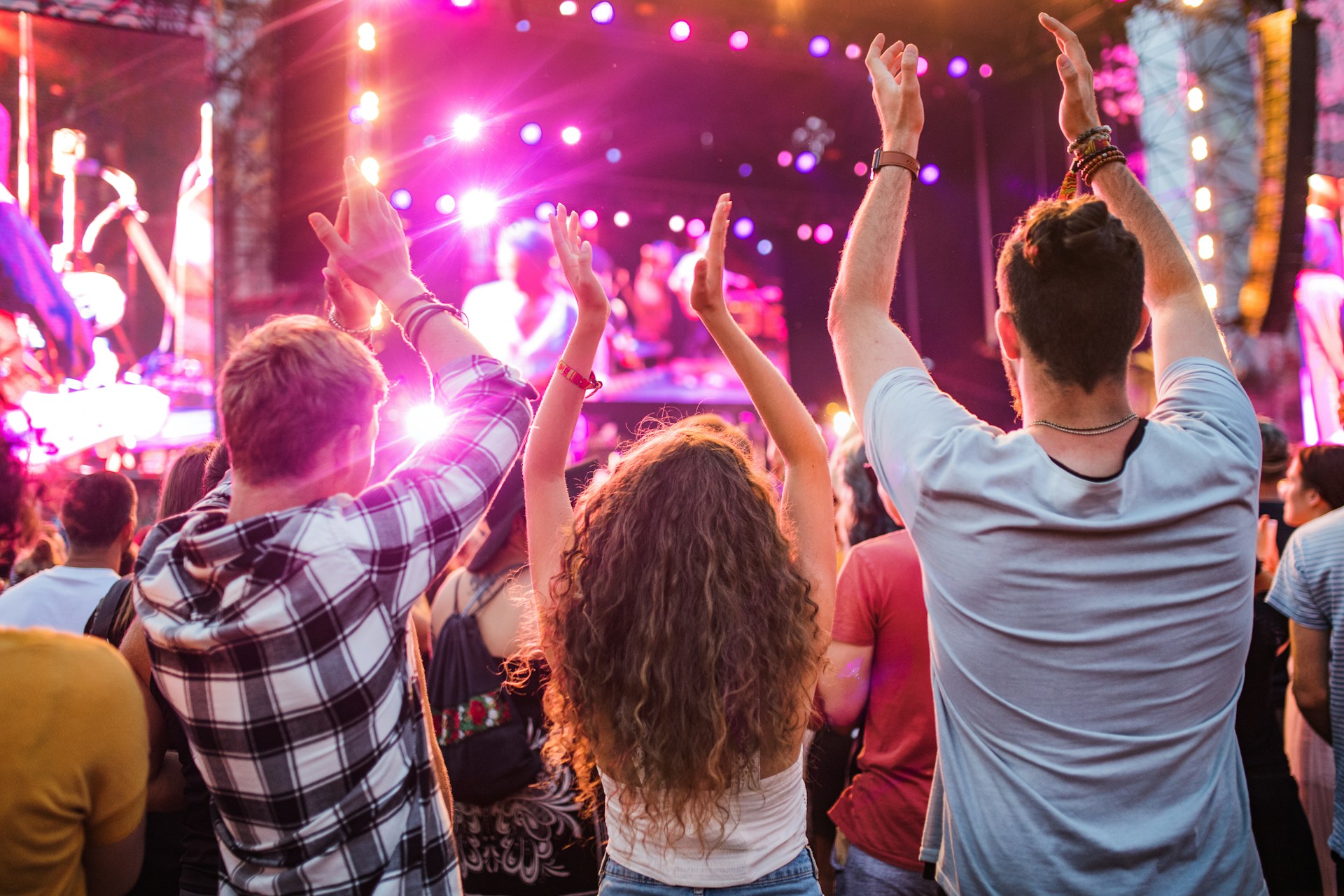
Music and sports seem like different worlds. One fills the air with sound and melody. The other energizes stadiums with competition and cheers. However, upon closer examination, both are powerful forces that connect communities. From small towns to massive cities, people gather for concerts and games. They sing, cheer, dance, and high-five. Through these shared moments, bonds form. These experiences extend far beyond entertainment—they foster trust, cultivate friendships, and shape vibrant communities.
The Power of Shared Experience
Whether it’s a local band playing in the park or a school football game under the lights, these moments draw people in. Everyone becomes part of something bigger. Music and sports create shared memories. When fans sing a team’s anthem or when a band plays a familiar tune, people join in without thinking. In these moments, strangers become neighbors.
Think about how fans of a baseball team wear the same colors or how a crowd at a music festival sways together to the beat. These acts may seem minor, but they carry profound meaning. They remind us we belong. This shared experience has a lasting impact, especially in times when people feel more isolated than ever.
Breaking Barriers Across Cultures
Music and sports speak universal languages. You don’t need to understand the lyrics of a song to feel its rhythm. You don’t need to know every rule of soccer to cheer when a goal is scored. This ability to cross language and cultural barriers helps connect communities worldwide.
Music festivals often feature artists from different backgrounds, creating space for people to discover new sounds. Sports teams are full of players from all over the world. Fans cheer for skill, effort, and teamwork, no matter where someone comes from. These activities build bridges between people who might not otherwise meet or understand each other.
In places where communities have been divided, joint music and sports events often play a key role in healing. People find common ground in rhythm and play. These shared passions help reduce fear and build trust among different groups.
Fostering Youth Engagement and Belonging
For young people, music and sports can be life-changing. Joining a school band or playing on a team gives them a sense of purpose. They learn discipline, teamwork, and the joy of achieving something together. Most importantly, they find where they fit in.
In neighborhoods where opportunities are limited, music and sports programs offer safe spaces. Kids find mentors and make friends. They stay engaged in something positive. Whether they perform on stage or compete on the field, they’re seen and heard. That recognition builds confidence and helps them grow.
Many youth centers and after-school programs use sports and music to connect communities and keep kids on the right path. These programs often bring parents and neighbors together to cheer and support the next generation.
Creating Spaces for Celebration and Healing
Communities gather for joy but also during hard times. Music and sports play significant roles in both. After natural disasters or tragedies, benefit concerts and charity matches raise funds and lift spirits. These events give people something to rally around.
They also provide emotional support. A familiar song can comfort someone in pain. A home game can restore pride in a city facing challenges. When people stand together, clap together, or sing together, they feel less alone. These small acts create strong emotional bonds and a sense of unity.
During the COVID-19 pandemic, virtual concerts and games kept people connected, even from a distance. It reminded us that even when apart, music and sports still have the power to unite us.
Supporting Local Economies and Culture
Besides emotional and social benefits, music and sports events also boost local economies. Stadiums, concert halls, and festivals attract visitors. Local businesses—from restaurants to shops—benefit from the extra activity. This cycle of support strengthens the fabric of a town or city.
Music and sports also help preserve and promote local culture. Traditional songs and community tournaments tell stories about who we are. Celebrating these traditions builds pride. It encourages people to stay involved and pass these customs on to future generations.
When a city hosts a team or a music event, it gives people something to cheer for. These occasions spark civic pride. They unite people from all walks of life under one identity.
The Future of Unity Through Music and Sports
As our world becomes increasingly digital and individualistic, we need genuine human connection more than ever. Music and sports remain powerful tools for building those connections. Schools, communities, and cities should invest in programs that make music and sports accessible to all. These programs help level the playing field and invite everyone to take part.
Community leaders and organizers can plan more joint events. Imagine a youth soccer tournament that ends with a local band’s performance. Or a neighborhood block party with pickup games and live music. These small efforts lead to significant results: safer, friendlier, and more connected places to live.
We should also continue to support creative partnerships. Musicians often perform at halftime shows. Athletes use music to motivate themselves and their fans. By blending the two, we deepen the sense of unity they both inspire.
Music and sports may seem like fun activities, but their actual value runs deeper. They build trust, inspire a sense of belonging, and, most importantly, connect communities. Whether you’re cheering from the stands or singing in a crowd, you’re not just part of an audience. You’re part of a shared story. And in that story, every beat and every play brings us closer together.